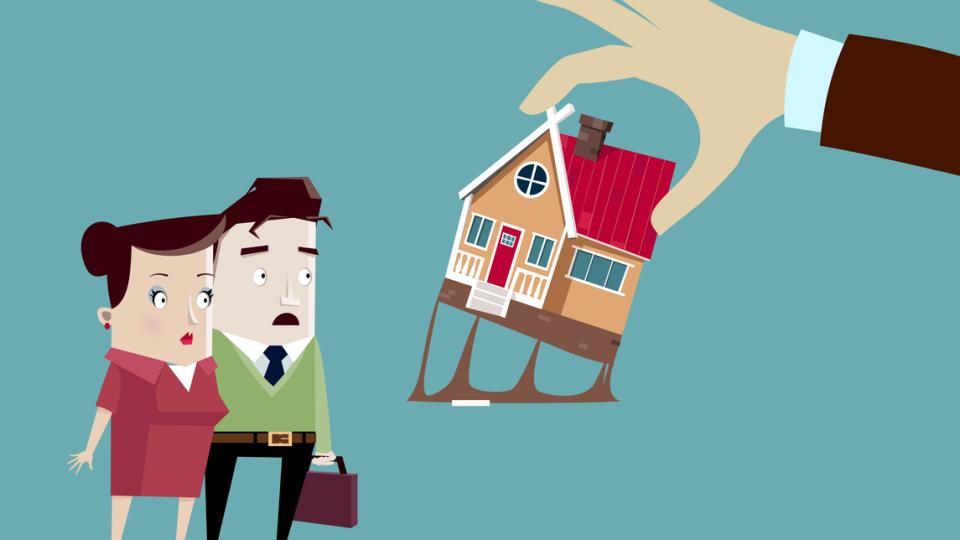It starts as a dream: a chance to move into the home you hope to call your own some day. For people with less than perfect credit, rent-to-own housing sounds like a lifeline. A real home where you can live now, and buy later.
But too often, that dream spirals into deception.
Rent-to-own agreements can be rife with pitfalls. Behind the glossy photos and easy promises are risks that can cost you thousands, and leave you with neither a home nor legal recourse.
When the Dream Turns Sour: The Risks Behind Rent-to-Own Deals
At face value, rent-to-own seems like a practical solution. You pay monthly rent, and part of that payment goes toward eventually purchasing the home. But here’s what many eager renters don’t realize: these contracts are largely unregulated, and that lack of oversight makes them a breeding ground for scams.
In one common scheme, a scammer pretends to own a property, sometimes even showing you a real home that's vacant or listed for sale by someone else. They might use polished photos pulled from other listings, or create fake listings with fake documents. In more advanced scams, the house might have a real owner, but it’s under threat of foreclosure due to unpaid taxes.
Once they’ve gained your trust, these fraudsters ask for upfront payments in cash, cryptocurrency, or untraceable cashier’s checks. By the time you realize something’s wrong, they’re gone. And so is your money.
Know the Red Flags Before You Sign Anything
If rent-to-own still feels like the best route for you, proceed carefully—and know what to look out for:
- Verify who owns the home. Ask for a recent property tax bill and check public records. The name on the contract should match the listed owner.
- Avoid untraceable payments. Never hand over money via cryptocurrency, wire transfer, or cashier’s check. Use a traceable method with built-in protections.
- Have a lawyer review the contract. These agreements vary wildly. An attorney can help identify hidden fees, inflated buyout prices, or clauses designed to make default more likely.
- Research the price. Some contracts are structured to charge you well above market value over time. Make sure both the rent and final purchase price align with local comps.
Scammers thrive on desperation. If you're feeling pressure to sign fast or send money before you’ve had time to research, that’s your cue to step away.
Not Just Homes: Rent-to-Own Appliances Aren’t Much Better
While we’re on the topic: if you’re considering a rent-to-own option for appliances or furniture, think twice. These agreements often come with steep markups and aggressive terms. In many cases, you’ll end up paying two to three times the retail price for an item you could have purchased outright (or financed with better terms) elsewhere.
It may seem convenient, but in the long run, it rarely pays off.
Don’t Let a Dream Become a Cautionary Tale
Rent-to-own isn’t inherently bad. In the right situation (as in, with a legitimate company, clear terms, and legal review) it can help you become a homeowner.
But scams are far too common in this space, and the financial consequences can be devastating. What begins as a hopeful step toward owning a home can quickly turn into a costly lesson.
Protect your dream. Stay skeptical. And don’t skip the research. If something feels off, walk away. There will always be another opportunity.
Would you feel confident entering a rent-to-own agreement today? Or does this story make you think twice?


